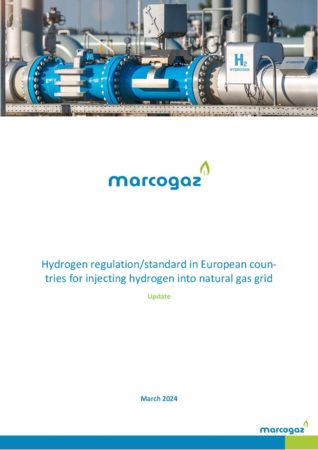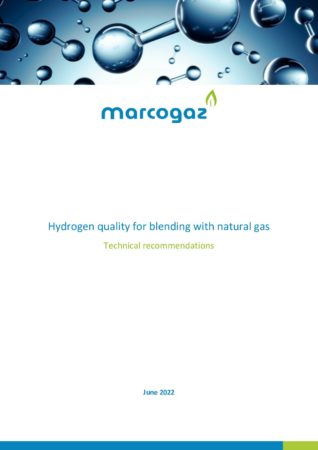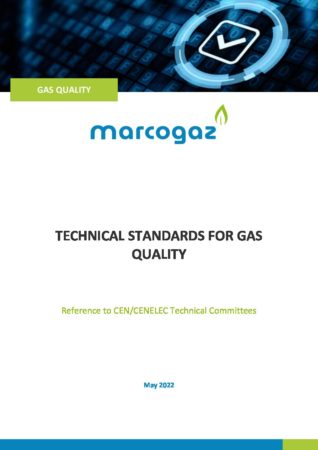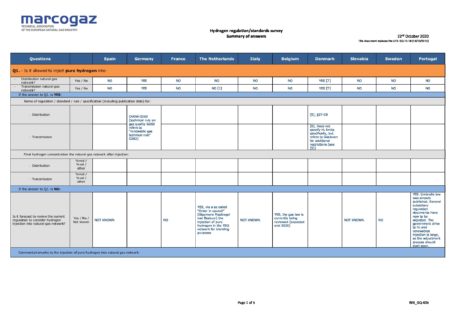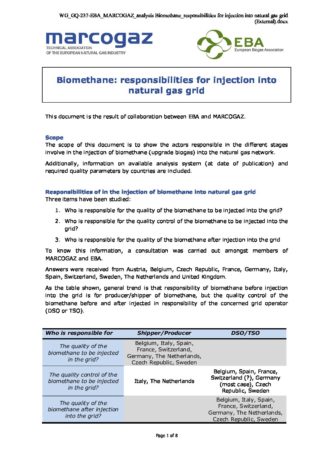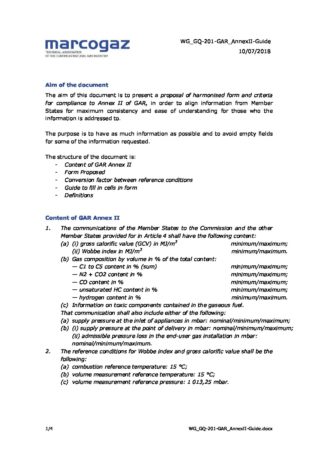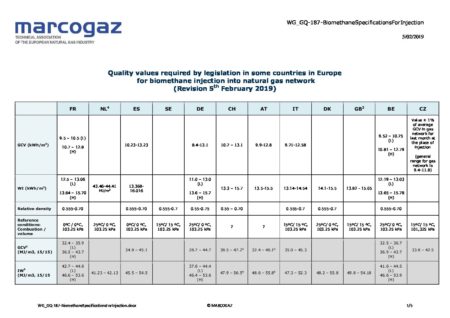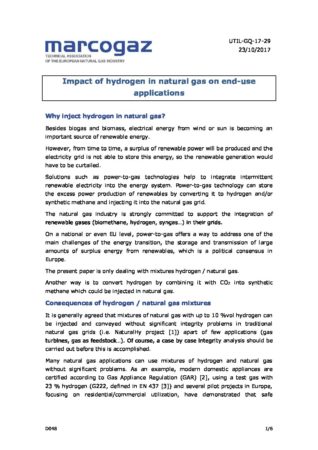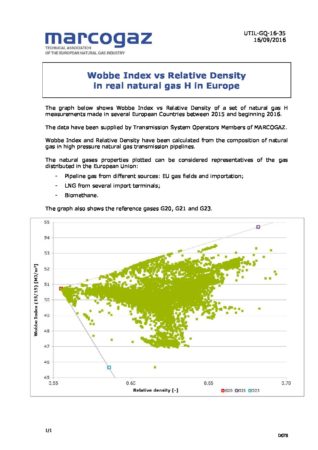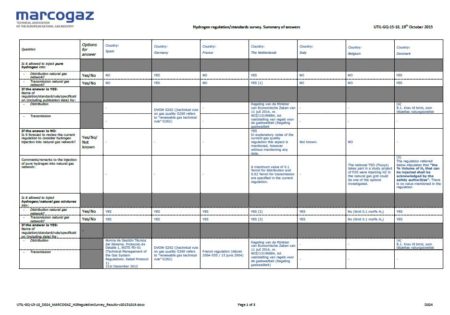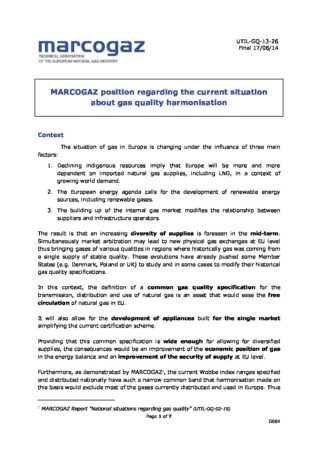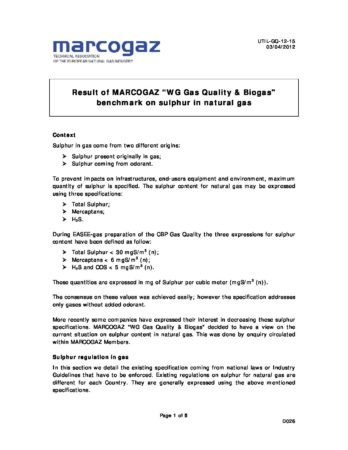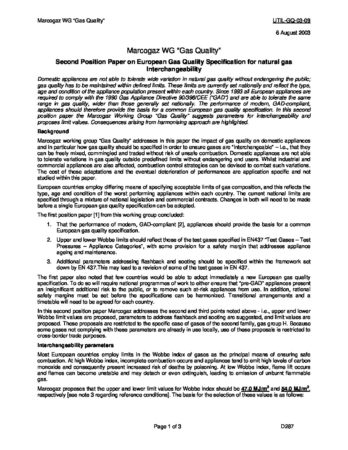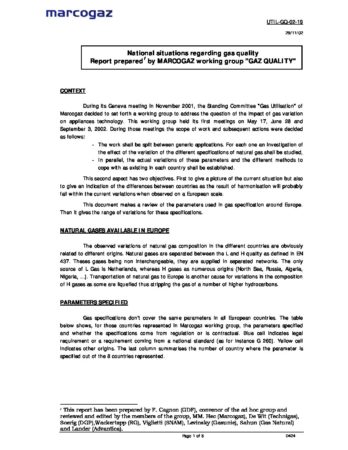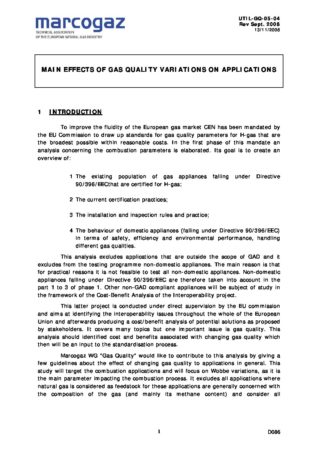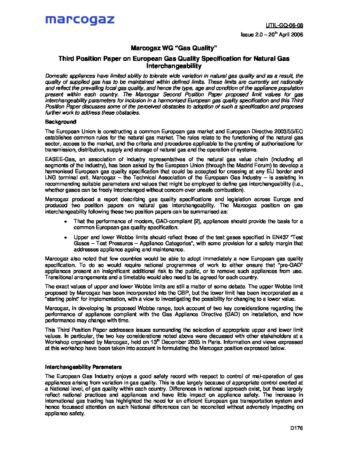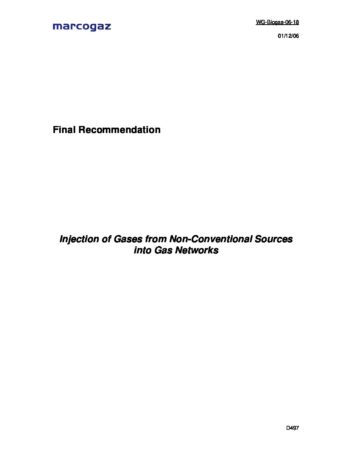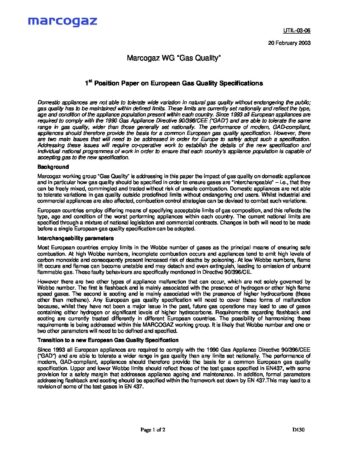Gas Utilisation > Gas Quality
The composition of natural gas and renewable gases strongly depends on the production method. The origin of gas can have a significant impact on its calorific value (energy), on its Wobbe Index (quality indicator of the combustion) and on the presence of additional components like carbon dioxide, heavy hydrocarbon, water content, sulphur, etc.
Gas quality is characterised by a large set of parameters allowing the safe and efficient transmission, storage, distribution and utilisation of gas in Europe. Gas system operators are responsible for the gas delivery to the consumer within an agreed quality range. Gas quality standards must constantly be ensured, in particular, to guarantee that the gas delivered to the customer never deviates from the agreed ranges. Off-spec gases are not accepted in the grid. For this reason, standards have to specify the widest quality range possible in order to accept as much gas as possible in the European network, to assure the security of supply, but always ensuring that there is no impact for the end users on the efficiency and the safe use of their appliances.
As part of environmental efforts of gas industry to curb greenhouse gas emissions, biomethane has gained prominence in the gas market in last years and it is becoming an important renewable indigenous source of energy in many European countries. Gas decarbonisation triggers gas quality changes and it is important to ensure the compatibility in quality of the new gases and the natural gas. In the last years, hydrogen has appeared in the European (and the world) scene as a new gas for the coming energy transition. Hydrogen can be a renewable gas if produced using renewable energy sources. Also, hydrogen can be used to produced renewable synthetic natural gas.
Gas industry is working in defining acceptable ranges for the injection/blending of these new gases in current natural gas system that will be still needed for years to support the energy transition. Also, to define the quality control to be conducted in this process is of the highest importance.
MARCOGAZ is working towards operational solutions to monitor the gas quality. Once the gas arrives into the European market, its quality must be properly analysed and adapted, if needed, to be in full compliance with European standards (EN 16726) or National specifications. This includes now the standards/specifications needed to define the quality of biomethane (EN 16723 1&2) or hydrogen (CEN/TS 17977). The industry works side-by-side with the European Committee for Standardisation (CEN), and other stakeholders, on the development of gas quality standards to ensure good coordination and acceptance among industry stakeholders.
MARCOGAZ is strongly committed to ensuring sustainable standards by limiting the exposure of workers and customers to health hazards. MARCOGAZ collects and shares knowledge, practices and regulations in Europe related to gas quality amongst its members while delivering technical document and position papers for the Authorities and all the involved stakeholders.

Chair
José Alfredo Lana Calvo



